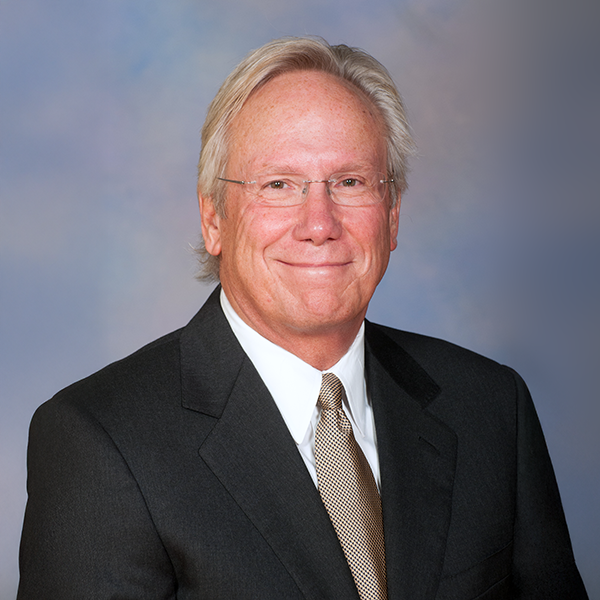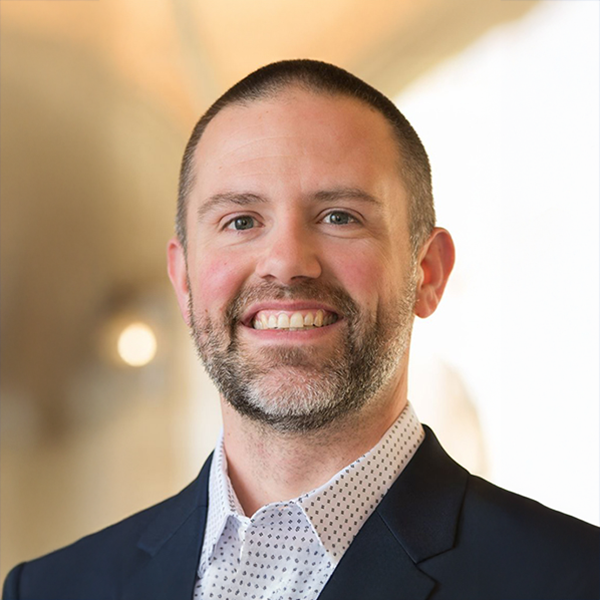Exercise Physiology Concentration
The mission of the Ph.D. program in Exercise Physiology is to train individuals for careers in research and teaching. A strong emphasis is placed on laboratory and research experience.
We take pride in preparing students for academic and professional positions in both exercise physiology and medical physiology. Primary coursework and training include the study of the acute and chronic cardiovascular, respiratory, metabolic, muscular and neuromuscular responses to exercise, athletic training and environmental stress.
Coursework within the Department at the Ph.D. level includes lectures, workshops and laboratories. A wide spectrum of additional advanced coursework is offered which involves the application of principles of basic exercise, organ systems, integrative and cellular physiology to clinical situations, the prescription of exercise and the evaluation of health and physical fitness.
Students trained in the Ph.D. program in exercise physiology have opportunities for learning a wide spectrum of specialties and have access to state-of-the-art, in-house technology for studying human exercise responses, animal physiology, both in vivo and in vitro vascular responses, cell culture, confocal imaging, molecular biology, laser therapy and many other new and emerging technologies.
Graduate Faculty
Curriculum
The philosophy of the program is to make the curriculum as flexible as possible in order to meet the needs of the student’s specific career goals and yet make sure the fundamentals are covered.
Therefore, every student works closely with his or her advisor and committee to design a unique curriculum that will provide the best opportunity to emerge from the program as a well-trained scientist in their field and also to be able to teach the next generation of undergraduate and graduate students.
Students entering the program with advanced graduate training may request substitutes or waivers for some required courses.
- Concentration Area (18 credits)
- Research Method and Statistics (7 credits)
- Directed Research Credit Hours (35 credits)
- Total Minimum UF Doctoral Credits: 60
- Total Credits for Ph.D. Required: 90
Note: A minimum of 90 credit hours beyond the bachelor’s degree is required for the Ph.D. degree. A maximum of 30 credit hours of graduate coursework from another institution may count towards this 90-hour minimum, pending approval by the student’s advisory committee.
All courses to be transferred must be letter graded with a grade of B or better and must be demonstrated to relate directly to the degree being sought. All credits obtained from a master’s degree must have been earned within the last seven years prior to transfer of credit.
Every student is required to accumulate a minimum of credits in Concentration Area Courses. These must include minimums of 9 credits of required core department courses, 3 credit hours of Basic or Medical School Courses in Physiology or Biochemistry.
In some cases, other advanced courses offered within the University may be substituted for these required courses with approval of the major adviser and supervisory committee.
- Neuromuscular Adaptations to Exercise (Spring, Dr. Barton): APK 6118 (3 credits)
- Advanced Exercise Physiology (Spring, Dr. Ferreira; Fall, Dr. Ryan): APK 6170 (3 credits)
- Cardiovascular Exercise Physiology† (Spring, Dr. Demetra Christou): APK 7107 (3 credits)
- Exercise Metabolism* (Fall, Dr. Powers, Dr. Ryan): APK 7117 (3 credits)
†GMS 6400C (below) or equivalent, highly recommended prerequisite
*BCH 6206 (below) or equivalent, highly recommended prerequisite
- Mammalian Molecular Biology and Genetics (Fall): BCH 5413 (3 credits)
- Advanced Metabolism (Metabolic Control Analysis)* (Fall): BCH 6206 (3 credits)
- Advanced Molecular and Cell Biology (Spring): BCH 6415 (3 credits)
- Principles of Physiology (Medical School Physiology) (Fall, Spring): GMS 6400C (6 credits)
- Cell Biology (Spring): GMS 6421 (4 credits)
- Fundamentals of Skeletal Muscle (Fall): GMS 6476 (3 credits)
- Medical Muscle and Cardiovascular Physiology (Spring): GMS 6411 (3 credits)
NOTES:
- *BCH 4024 (As an elective, 4 credits); Introduction to Biochemistry and Molecular Biology or equivalent is a required prerequisite undergraduate course for BCH 6206. Students matriculating without extensive biochemistry before admission must take this course or equivalent. With the approval of your supervisory committee, BCH 4024 can count towards your Ph.D. degree as an “elective.”
- A series of GMS 6000 courses are also available in general medical sciences.
- Additional biochemistry, nutrition, cell biology and immunology courses are possible alternatives to these courses pending advisor oversight.
- Environmental Stress and Exercise: APK 7108 (3 credits)
- Physiological bases of Exercise and Sports Science: APK 6116C (3 credits)
- Professional Skills and Grant Writing: APK 6715 (3 credits)
- Current Topics in Exercise and Sports Sciences: APK 5936 (1-5 credits)
a) Cellular Physiology and Biophysics
b) Pharmacology of Exercise Science
c) Professional Skills and Grant Writing (APK 6715, Spring, 3) or other grant writing courses
d) Scientific Publication Writing
Notes:
- Many high-level courses are taught under these headings can, with approval of the student’s committee, substitute for some required courses.
- A maximum of six undergraduate credits (3000-4999), outside the college (HHP), may be used for support course work when taken as part of an approved graduate program and must be approved by the supervisory committee.
- Principles of Immunology: GMS 6140 (3 credits)
- Integrative Physiology of Aging: GMS 6181 (3 credits)
- Circulation of the Blood: GMS 6410 (3 credits)
- Vitamins in Human Nutrition: HUN 6331 (3 credits)
- Immunology: PCB 5235 (3 credits)
- Neuroplasticity: PHT 6718 (3 credits)
- Mammalian Pharmacology: VME 6650 (4 credits)
- Biomedical Instrumentation: BME 5500 (3 credits)
- Introduction to Biochemistry and Molecular Biology: BCH 4024 (4 credits)
- Adv Physical Biochem: BCH6740 (3 credits)
- Epigenetics Dis/Devel: BCH7412 (1 credit)
Students are required to take Research Methods, 1 additional Statistics course and 1 Responsible Conduct of Science course. Additional credits cannot be counted toward the concentration area.
Department of Applied Physiology & Kinesiology
- APK Research Methods: HLP 6535 (3 credits)
Department of Statistics and College of Public Health & Health Professions
- Statistical Methods in Research 1: STA 6166 (3 credits)
- Statistical Methods in Research 2 (regression): STA 6167 (3 credits)
- Introduction to Biostatistics: STA 6176 (3 credits)
- Fundamentals of Research Design: STA 6200 (2 credits)
- Analysis of Research Data: STA 6201 (3 credits)
- Introduction to Biostatistical Methods (SAS-based): PHC 6052 (3 credits)
- Statistical Methods for Health Sci (SPSS-based): PHC 6050 (3 credits)
- Ethical and Policy Issues in Clinical Research: GMS 6931 (2 credits)
- Responsible Conduct of Research (Spring): GMS 7003 (1 credit)
- Directed Independent Study (grade assigned)*: PET 6900 (1-6 credits)
- Supervised Research (S/U grade)*: PET 6910 (<6 credits)
- Advanced Research (Pre-candidacy Ph.D. Research): HLP 7979 (1-6 credits)
- Dissertation Hours (after admission to candidacy): HLP 7980 (15 credits minimum)
*Report, paper and/or data needs to be communicated with mentor; mentor will advise.
Examples of APK 6900 Directed Independent Study:
- Mechanisms of Muscle Atrophy
- Muscle Physiology
- Muscle Regeneration
- Cardiovascular Techniques
Students are required to show evidence of a master’s thesis or acceptable research project (one publication accepted by a peer reviewed journal) prior to embarking upon a dissertation.
Students are eligible to take their qualifying examinations following four semesters of study and upon approval of their supervisory committee. It is highly recommended that the exam be completed prior to the end of the third year of Ph.D. training and preferably after the 2nd year.
The purpose of the Ph.D. qualifying exam is to evaluate the student’s potential for advanced scholarly work at the Ph.D. level and is a necessary pre-requisite for continuing in the Ph.D. program.
The supervisory committee is comprised of four faculty, a chair (usually the dissertation adviser), two additional members of the APK graduate program and one outside faculty who is also a member of the graduate faculty of the University of Florida. Members outside of the graduate faculty, e.g. at other universities, can be added to the committee, but they must be in addition to these four members.
The qualifying examination is unique to each graduate program in the University. For example, the rules that apply to the exam in Exercise Physiology do not necessarily apply to Biobehavioral Science or other graduate programs.
Written Component
The members of the supervisory committee meet with the student several months before the examination and both student and faculty agree upon the areas to be covered by each faculty member. This should be done in writing to avoid misunderstandings. These topics should not overlap between committee members.
The topics may be defined by specific course material, general areas of exercise science (e.g. cardiovascular physiology, metabolism, cell biology, etc.) or specific sets of reading material that cover broad areas of applied physiology. Prior to the examination, the members of the committee confidentially submit one or more (usually 2-3) written essay questions on their topics to the chair of the supervisory committee or the graduate program administrator.
The test is administered in a closed book fashion, generally over a two-day period depending on the committee’s instructions, and under direct supervision. The exam questions are graded by the committee members as “Pass” or “Fail” and a decision is made as to whether the student a) is allowed to continue on to the oral component of the exam, b) fails the exam or c) is allowed to retake the examination.
Oral Component
The oral exam is required by the University as part of the qualifying exam and usually takes place within 2 weeks of the written component. It is important that students allow plenty of time to schedule the oral exam and it is recommended that this be done in conjunction with the scheduling of the written exam.
The length and content of the exam is determined entirely by the supervisory committee. The purpose of the oral component is:
- To allow the student the chance to clarify any weak components of the written exam or to answer any components of the exam that were not previously addressed
- To evaluate the ability of the student to think on his or her feet and carry on an intelligent scientific dialogue with other scientists
- To evaluate whether the student has sufficient breadth of knowledge in physiology, exercise and life science to move on to a specialized area of research.
A graduate student does not become a candidate for the doctoral (Ph.D.) degree until granted formal admission to candidacy. Such admission requires approval of the student’s supervisory committee, the department chairperson, the college dean and the Dean of the Graduate School.
- Approval will be based on:
- The academic record of the student
- The opinion of the supervisory committee concerning overall fitness for candidacy
- An approved dissertation topic
- A successful qualifying examination
Application for admission to candidacy should be made as soon as the qualifying examination has been passed and the student’s supervisory committee approves a dissertation topic. A student may not register for HLP 7980 (Research and Dissertation) until he or she is admitted to candidacy for a doctoral degree.
The dissertation proposal is not a formal University of Florida requirement but is a requirement of the Applied Physiology Graduate Programs.
The format of the proposal is determined by the student’s supervisory committee but generally takes the form of a presentation of the proposed content of the dissertation and the data collected thus far, at either a private meeting of the committee or more commonly at a formal public presentation. The proposal should be completed sometime between the admission to candidacy and the dissertation defense.
A document summarizing the content of the proposed work is submitted to the graduate program administrator along with the appropriate form, approved and signed by the committee members.
Prior to graduating, each student must successfully complete their research project and present the written dissertation to the supervisory committee, meeting the guidelines of the University of Florida Graduate School.
The committee will evaluate the dissertation and once their standards are met, the document is approved. At this time the student may schedule the verbal defense before the supervisory committee in an open public forum.






